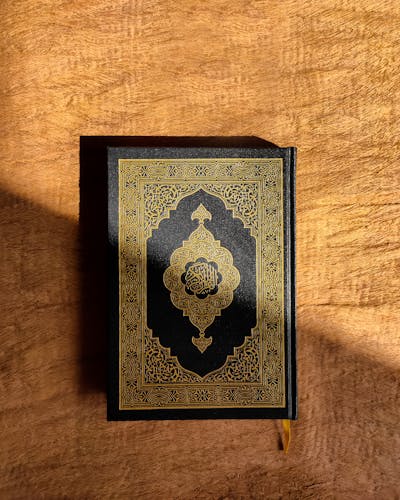Surah Ar-Rahman (The Beneficent): Understand The Majestic Message of ALLAH in 2025

(The Beneficent)
Surah Ar-Rahman (The Beneficent) is the 55th chapter of the Quran and is renowned for its poetic beauty and profound message. Here are some key points about this Surah:
Structure and Themes

- Repetition of the Refrain:
- The phrase “Which, then, of your Lord’s blessings do you both deny?” is repeated 31 times throughout the Surah. This repetition emphasises the countless blessings of Allah and serves as a reminder to acknowledge and be grateful for them.
- Dual Address:
- The Surah addresses both humans and jinn, highlighting that the message of the Quran is universal and applies to all of Allah’s creations.
- Description of Blessings:
- The Surah enumerates various blessings and signs of Allah’s mercy, including the creation of humans, the balance of nature, the fruits of the earth, and the marvels of the heavens and the earth.
- Contrast Between Believers and Disbelievers:
- It contrasts the fate of the righteous and the wicked, describing the rewards for the believers in paradise and the punishment for the disbelievers.
Literary Beauty
- Poetic Style:
- Surah Ar-Rahman is known for its rhythmic and melodic verses, which enhance its memorability and impact. The repetition of the refrain adds to its musical quality.
- Imagery and Metaphors:
- The Surah uses vivid imagery and metaphors to describe the natural world and the afterlife, making its message more relatable and impactful.
Key Messages
- Gratitude:
- The repeated refrain serves as a call to reflect on and appreciate the numerous blessings bestowed by Allah.
- Divine Mercy:
- The Surah highlights Allah’s mercy and compassion, reminding believers of His benevolence and the importance of seeking His forgiveness.
- Accountability:
- It underscores the concept of accountability, reminding believers that they will be judged based on their actions and their recognition of Allah’s blessings.
Surah Ar-Rahman is often recited for its calming effect, and it is a favourite among many for its profound message and literary elegance. The concept of jinn in Islam is both fascinating and complex. Here are some key points to help you understand it better:
Origin and Nature
- Creation:
- Jinn are created from a smokeless, scorching fire, as mentioned in the Quran1. This makes them distinct from humans, who are created from clay, and angels, who are created from light.
- Invisibility:
Characteristics
- Free Will:
- Like humans, jinn possess free will. They can choose to do good or evil and are accountable for their actions2.
- Abilities:
- Jinn has abilities that humans do not, such as shape-shifting, flying, and moving at incredible speeds1. Despite these abilities, humans are considered more intelligent.
- Lifespan:
- Jinn have longer lifespans compared to humans, but they are not immortal. They live, reproduce, and die just like humans.
Beliefs and Practices
- Religion:
- Like humans, they can follow different religions. Some are Muslims, while others may be Christians, Jews, or atheists1. They are judged based on their faith and actions.
- Interaction with Humans:
- While jinn can interact with humans, such interactions are generally discouraged. Some jinn are known to possess humans or cause harm, but others can be benign or even helpful2.
- Cultural Influence:
- The concept of jinn has influenced various cultural beliefs and folklore. For example, the English word “genie” is derived from the Arabic “jinni” and has been popularized in stories like “Aladdin”2.
Quranic References

- The Quran mentions jinn in several verses, emphasising their creation, abilities, and accountability. There is even a chapter named Surah Al-Jinn (Chapter 72), which discusses their acknowledgement of the Quran and their acceptance of Islam1.
Key Messages
- Worship:
- The primary purpose of jinn, like humans, is to worship Allah. The Quran states, “I did not create jinn and humans except to worship Me” (Quran 51:56)
Key Blessings in Surah Ar-Rahman
- Key Blessings in Surah Ar-Rahman
 The Gift of Speech and Expression:
The Gift of Speech and Expression:
- Allah created humans from clay and taught them to speak and express themselves. This ability to communicate is a profound blessing that enables us to share knowledge, emotions, and ideas (Quran 55:3-4)1.
- The Holy Quran:
- The Quran is described as a complete code of conduct guiding spiritual and worldly matters. It elevates the status of those who follow its teachings (Quran 55:2)1.
- The Sun and the Moon:
 Provision of Food:
Provision of Food:
- Allah provides food for all creatures, including fruits, grains, and other sustenance. This provision is essential for life and is a sign of Allah’s mercy (Quran 55:11-12)1.
 The Oceans:
The Oceans:
- The seas are a source of travel, food, and beauty. Ships sail through them, and they provide pearls and corals. The separation of saltwater and freshwater is another miraculous sign (Quran 55:19-22)1.
- Iman (Faith):
- Belief in Allah and the understanding that everything in this world is temporary, while Allah is eternal, is a significant blessing. This faith guides believers to live righteous lives (Quran 55:26-27)1.
- The Day of Judgment:
- Paradise (Jannah):
- Hell (Jahannam):
- The creation of hell serves as a warning for those who disobey Allah. It underscores the importance of justice and accountability (Quran 55:43-45)1.
Lessons for Believers
- Gratitude:
- The repeated refrain, “Which, then, of your Lord’s blessings do you both deny?” encourages believers to reflect on and appreciate the countless blessings they receive from Allah.
- Recognition of Allah’s Mercy:
- The Surah emphasises Allah’s boundless mercy and compassion, reminding believers of His continuous care and provision.
- Accountability and Justice:
- Believers are reminded of the Day of Judgment and the importance of living a life that aligns with Allah’s commands to attain paradise and avoid hell.
 Faith and Obedience:
Faith and Obedience:
- The Surah calls for strong faith in Allah and adherence to the teachings of the Quran and the Prophet Muhammad (PBUH).
- Reflection on Creation:
- By highlighting various aspects of creation, the Surah encourages believers to ponder the signs of Allah in the natural world, strengthening their faith and understanding of His greatness.
Surah Ar-Rahman beautifully encapsulates the essence of Allah’s mercy and the importance of recognising and being grateful for His blessings. It serves as a powerful reminder for believers to live a life of faith, gratitude, and righteousness.
The repetition of the phrase “Which, then, of your Lord’s blessings do you both deny?” in Surah Ar-Rahman serves several important purposes and carries deep significance for believers:
Emphasis on Gratitude
- Constant Reminder:
- The repeated refrain acts as a constant reminder to believers to acknowledge and be grateful for the countless blessings bestowed by Allah. It encourages reflection on the various aspects of life and creation that are often taken for granted.
- Awareness of Blessings:
- By repeating this phrase, the Surah draws attention to the numerous and diverse blessings of Allah, from the natural world to spiritual guidance. It helps believers recognise that every aspect of their existence is a gift from Allah.
Reflection and Contemplation
- Deep Reflection:
- The repetition prompts believers to contemplate each blessing mentioned in the Surah deeply. It encourages them to think about the significance of these blessings in their lives and how they contribute to their well-being and spiritual growth.
- Mindfulness:
- It fosters a sense of mindfulness, urging believers to be aware of Allah’s presence and mercy in every moment. This mindfulness helps develop a stronger connection with Allah and a more profound sense of spirituality.
Accountability and Humility
- Acknowledgement of Dependence:
- The phrase reminds believers of their dependence on Allah for everything. It instils a sense of humility, recognising that all blessings come from Allah and that humans are in constant need of His mercy and provision.
- Accountability:
- It serves as a reminder that believers will be held accountable for how they respond to Allah’s blessings. It encourages them to use these blessings wisely and in ways that are pleasing to Allah.
Universal Message
- Inclusivity:
- The phrase addresses both humans and jinn, emphasising the universal nature of Allah’s blessings and the message of the Quran. It underscores that all of creation is subject to Allah’s mercy and judgment.
- Unity in Worship:
- By addressing both humans and jinn, the Surah highlights the unity of all beings in their purpose of worshipping Allah and recognising His sovereignty.
Reinforcement of Key Themes
 Mercy and Compassion:
Mercy and Compassion:
- The repetition reinforces the theme of Allah’s mercy and compassion, which is central to Surah Ar-Rahman. It reminds believers that Allah’s mercy is abundant and ever-present.
 Divine Generosity:
Divine Generosity:
- It underscores the generosity of Allah, who provides for all needs and grants numerous blessings without measure. This encourages believers to trust in Allah’s provision and to be generous themselves.
The repetition of this phrase 31 times is a powerful literary and spiritual device that enhances the impact of Surah’s message. It serves to deepen the believer’s appreciation of Allah’s blessings and to cultivate a sense of gratitude, humility, and mindfulness.
Summary of the blessings of Allah Almighty mentioned in Surah Ar-Rahman:
 The Quran:
The Quran:
- Allah’s revelation of the Quran as a guide for humanity (Quran 55:2).
- Creation of Humans:
- The creation of humans from clay and the gift of speech and expression (Quran 55:3-4).
- The Sun and the Moon:
- The precise movement of the sun and the moon, which follow their orbits (Quran 55:5).
- The Stars and Trees:
- The stars and trees prostrate to Allah, symbolising order and submission in the universe (Quran 55:6).
 The Sky and Balance:
The Sky and Balance:
- The creation of the sky and the establishment of balance and justice (Quran 55:7-9).
- Provision of Food:
- The earth’s produce, including fruits, grains, and fragrant plants (Quran 55:10-12).
- The Seas:
- The seas, which provide pearls and corals, and the ships that sail through them (Quran 55:19-22, 55:24).
 Fresh and Saltwater:
Fresh and Saltwater:
- The separation of fresh and saltwater, which do not mix due to a barrier set by Allah (Quran 55:19-20).
- Creation of Humans and Jinn:
- The creation of humans and jinn to worship Allah (Quran 55:14-15).
- The Day of Judgment:
- The certainty of the Day of Judgment, where everyone will be held accountable (Quran 55:31-32).
- Paradise (Jannah):
- The description of the rewards in paradise for the righteous includes gardens, flowing springs, and various delights (Quran 55:46-78).
- Hell (Jahannam):
- The warning of punishment in hell for the disbelievers (Quran 55:43-45).
- Iman (Faith):
- The blessing of faith and the understanding that everything in this world is temporary, while Allah is eternal (Quran 55:26-27).
These blessings highlight Allah’s mercy, generosity, and the importance of gratitude, reflection, and righteousness. Each blessing serves as a reminder of Allah’s continuous care and provision for His creation.
In Islam, paradise is known as Jannah, which is described as a place of eternal bliss and reward for the righteous.
Key aspects of Jannah:
Description of Jannah
 Gardens and Rivers:
Gardens and Rivers:
- Jannah is often depicted as lush gardens with flowing rivers of water, milk, honey, and wine that do not intoxicate. These gardens are filled with fruits and trees of various kinds, providing endless delight to its inhabitants1.
- Eternal Youth and Beauty:
- Inhabitants of Jannah will enjoy eternal youth and beauty. They will be free from any physical or emotional pain, living in a state of perpetual happiness and contentment1.
- Luxurious Abodes:
- The dwellings in Jannah are described as magnificent palaces and tents made of pearls, gold, and other precious materials. These abodes are designed to provide the utmost comfort and luxury1.
- Clothing and Adornments:
- The people of Jannah will be adorned with fine garments of silk and brocade, and they will wear bracelets of gold and pearls. Their attire will reflect their elevated status and the honour bestowed upon them by Allah1.
- Food and Drink:
- The food in Jannah will be of the finest quality, and there will be no need for waste elimination. The inhabitants will enjoy a variety of delicious foods and drinks, served in beautiful vessels1.
- Companionship:
- Believers will be reunited with their loved ones and will enjoy the company of righteous people. They will also have the companionship of pure and beautiful beings known as Hoor al-Ayn1.
- Peace and Tranquillity:
- Jannah is a place of peace, free from any form of conflict, envy, or hatred. The inhabitants will live in harmony, experiencing complete satisfaction and joy1.
Spiritual Rewards
- Proximity to Allah:
- The greatest reward in Jannah is the closeness to Allah. Believers will have the honour of seeing Allah, which is considered the ultimate blessing and source of joy1.
- Eternal Life:
Gates of Jannah
- Jannah has eight gates, each associated with different righteous deeds such as prayer, fasting, charity, and patience. Believers who excel in these deeds will be invited to enter through the corresponding gates2.
Lessons for Believers
- Striving for Righteousness:
- The concept of Jannah motivates believers to live a life of righteousness, following the teachings of the Quran and the Prophet Muhammad (PBUH).
- Hope and Encouragement:
- The promise of Jannah serves as a beacon of hope, encouraging believers to endure hardships and remain steadfast in their faith.
- Gratitude and Worship:
- Reflecting on the descriptions of Jannah fosters a sense of gratitude towards Allah and inspires believers to worship Him sincerely and consistently.
Jannah represents the ultimate reward for those who lead a life of faith and good deeds, embodying the values of Islam. It is a place where all desires are fulfilled, and the soul finds eternal peace and happiness.
1: About Islam 2: Learn Religions
If you enjoyed this article, please like and share it with your friends. Don’t forget to share your personal experience/observations, thoughts and valuable suggestions for the education /benefit of others. Do subscribe to remain onboard and get more great content!
We All Face Death in the End. But on the Way, Be Careful Never to Hurt a Human Heart.
مسواک 2024: فطرت کا ٹوتھ برش انقلاب
